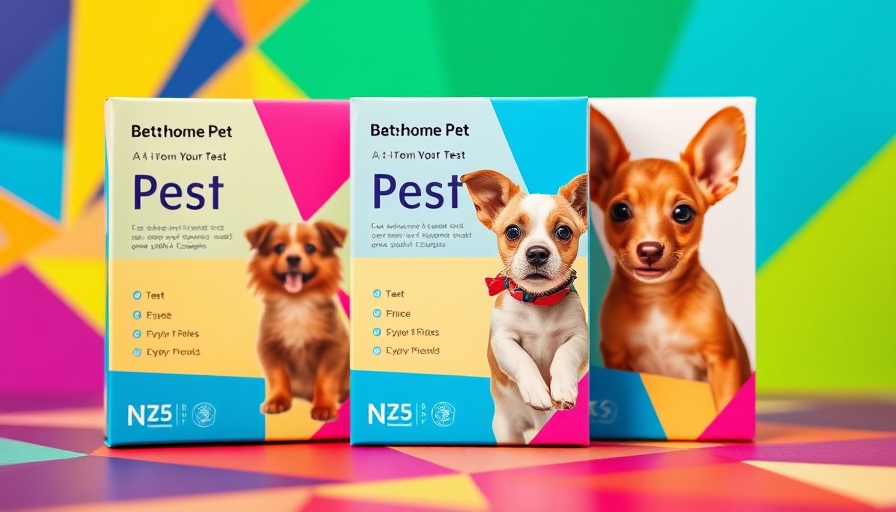
The Rise of At-Home Pet DNA Testing: A Technological Innovation
In an era where technology permeates every aspect of our lives, it's not surprising that pet care has also embraced innovation. At-home pet DNA test kits represent a significant leap forward in understanding our feline companions. Promising to unveil genetic backgrounds, health risks, and even breed-specific traits, these kits offer pet owners a unique opportunity to strengthen their bond with their furry friends. By simply swabbing their pet's mouth and mailing the sample, pet owners can receive insights directly in their inboxes, ushering in an age of informed pet parenthood.
The Process: How Do These Kits Work?
The process is designed for simplicity. Owners collect saliva samples, which are sent to dedicated labs where advanced genomic technology comes into play. Within weeks, results can reveal vital information about a pet's ancestry and potential health concerns. With options like Basepaws and Wisdom Panel leading the market, each company offers distinct insights, which can vary significantly due to differences in methodologies and sample comparisons.
Understanding the Limitations: What You Should Know
While these tests can be fascinating, it's essential to approach the results with a critical eye. Various factors can affect accuracy, including the reference database used and the algorithms employed by each testing company. Misinterpretation of breed traits and health risks can occur, making it crucial for pet owners to consult veterinarians when interpreting results. This cautious approach can save pet parents from unnecessary worry or misguided pet care decisions.
What the Results Reveal: Beyond Ancestry
Beyond breed ancestry, pet DNA tests often provide insights related to health markers, which can aid in preventive care. Understanding whether a breed predisposes to specific conditions allows owners to take proactive measures. Features such as the ability to share results with a vet further enhance these kits' utility, promoting a more integrated approach to pet health.
Gaining Perspective: Animal Experts Weigh In
Consulting animal health professionals on the utility of pet DNA tests reveals a spectrum of opinion. While some experts endorse these tests as useful tools for understanding breed-related health issues, others caution against placing too much trust in the accuracy of results. The consensus emphasizes that these tests should complement regular veterinary examinations rather than replace them.
The Future of Pet Care: Trends to Consider
The landscape of pet care is rapidly evolving, influenced by trends in technology. As the technology behind at-home DNA tests continues to advance, we can expect even more accurate and comprehensive results. Furthermore, innovations in artificial intelligence may help decode complex genetic data, potentially leading to more personalized pet care strategies.
Conclusion: Are At-Home Pet DNA Tests Worth the Investment?
Pet owners are increasingly looking for tools to enhance their understanding of their pets' health and heritage. At-home DNA testing kits present a promising frontier, although they come with limitations. As technology emerges and improves, these kits may increase in accuracy and utility, making them a worthy investment for those passionate about their pets' well-being.
In an age fueled by tech news today and innovations like robotics in pet care, it's worth staying tuned into new gadgets in 2025 that enhance the experience of being a pet owner.
 Add Row
Add Row  Add
Add 




Write A Comment